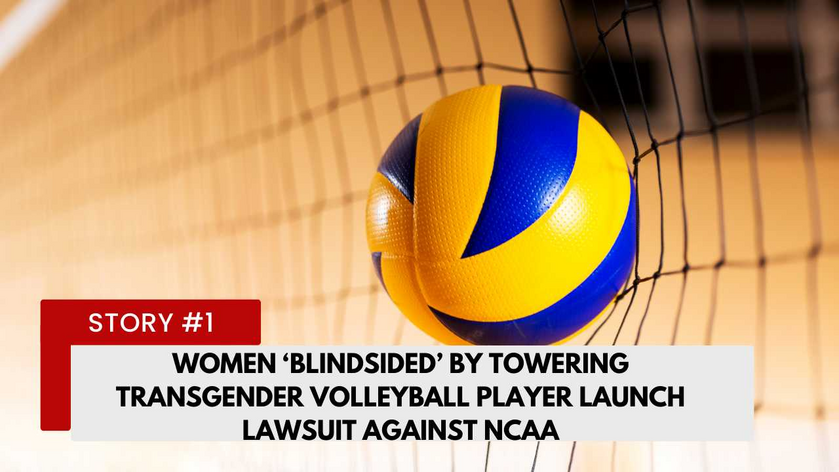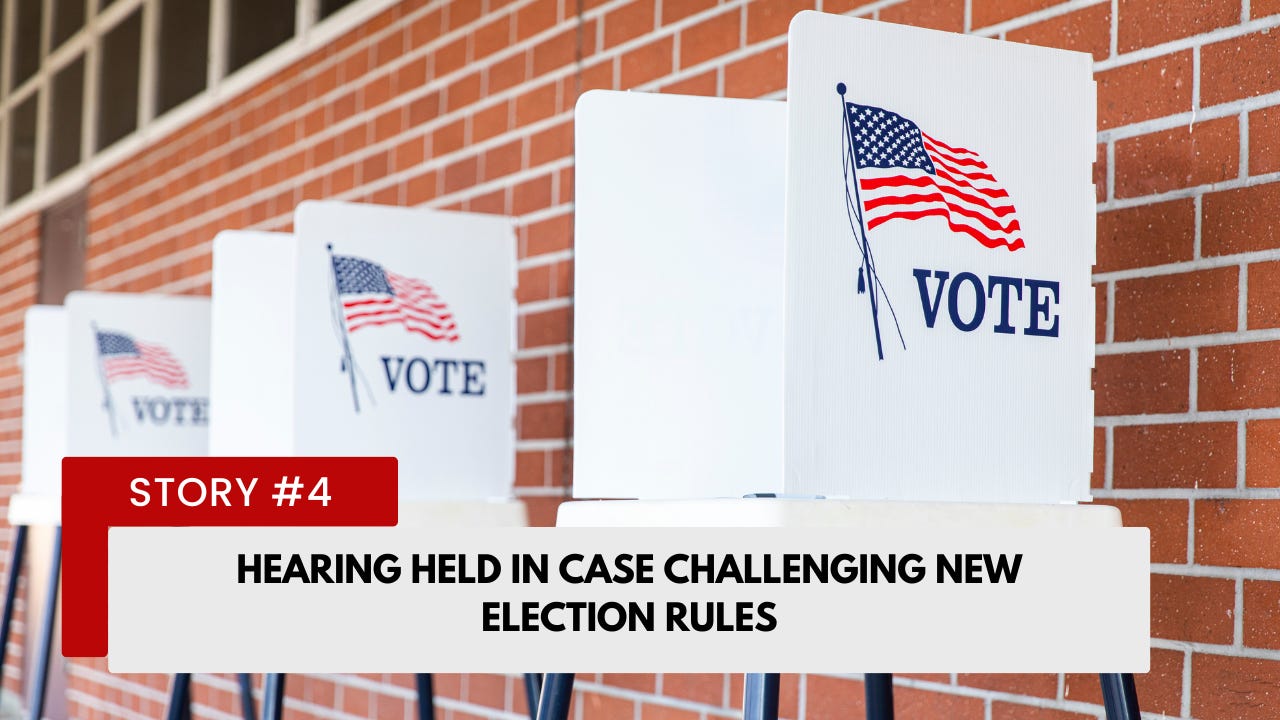

LOS ANGELES, CALIF - A group that says it is representing female athletes has launched a lawsuit against the NCAA after the women were “blindsided” by the inclusion of an unannounced transgender player for the San Jose State University women’s volleyball team.
Concerned Women of America (CWA) filed the lawsuit after the NCAA cleared 6-foot-one Blaire Fleming, who identifies as a woman, to play for San Jose this season without telling the rest of the conference that he would be playing, according to Fox News.
“We want to protect the integrity of women’s sports but also the safety of these female athletes,” CWA representative Macy Petty told Fox News.
“Many of these schools were unaware that there was a male athlete on this team until this news article came out in April,” Petty continued. “We just want to make sure that these schools know exactly what is going on in this athletic program because the NCAA and SJSU had not previous. Click here to read more.

LANSING, Mich - If Michigan legislators pass Senate Bill 275, the bill’s new “low carbon fuel standard” will increase costs for drivers by $350 per person annually. Our new report, Low Carbon, High Costs: How a Clean Fuel Standard Would Increase Gas Prices and Living Costs in Michigan, shows how the standard will impact the statewide economy, provide almost no environmental benefit, and enrich rent-seeking businesses rather than helping the people of Michigan.
The proposed standard, which aims to reduce carbon dioxide emissions, works through a complicated cap-and-trade system. Its rising costs will hit those living in poverty the hardest, but its impact will extend to millions of inflation-pressured Michigan residents.
“Under the standard proposed in Senate Bill 275 of 2023,” our report says, “Michigan would need to reduce its aggregate fuel supply's carbon intensity — a measurement of how much carbon dioxide is released per unit of fuel consumed — by 25% by the end of 2035, using 2019 as the baseline.” Click here to read more.

GREAT FALLS, Mont. (AP) — An 81-year-old Montana man was sentenced Monday to six months in federal prison for illegally using tissue and testicles from large sheep hunted in Central Asia and the U.S. to create hybrid sheep for captive trophy hunting in Texas and Minnesota.
U.S. District Court Judge Brian Morris said he struggled to come up with a sentence for Arthur “Jack” Schubarth of Vaughn, Montana. He said he weighed Schubarth’s age and lack of a criminal record with a sentence that would deter anyone else from trying to “change the genetic makeup of the creatures” on the earth.
Morris also fined Schubarth $20,000 and ordered him to make a $4,000 payment to the U.S. Fish and Wildlife Foundation. Schubarth will be allowed to self-report to a Bureau of Prisons medical facility. Click here to read more.

ATLANTA, GA - Plaintiffs challenging rules passed by the Georgia State Board of Elections are not questioning their constitutionality but are asking a judge to clarify what it could mean on Election Night.
Fulton County Superior Court Judge Robert McBurney held a bench trial Tuesday just 35 days before the Nov. 5 general election to consider questions raised by the Democratic Party of Georgia and a long list of plaintiffs in the lawsuit.
The rules passed by the state elections board allow local boards to conduct a "reasonable inquiry" before certifying elections and examine all documents for discrepancies. Click here to read more.

BOSTON, MASS - Democratic Massachusetts Gov. Maura Healey will take emergency action to force a sweeping gun reform package to take effect immediately, blocking hopes of Second Amendment advocates to suspend the law until putting it to a vote, Boston 25 News reported Wednesday.
Healey signed the law on July 25, which included bans on “ghost guns,” 3-D printed guns and expansions of red flag laws, according to Boston 25 News. The law was originally set to go into effect Oct. 27, 90 days after its passing, however the emergency preamble would implement the law immediately and prohibit temporary suspension of the law that the ballot initiative would request, drawing the ire of Second Amendment advocates in the state. Click here to read more.



















